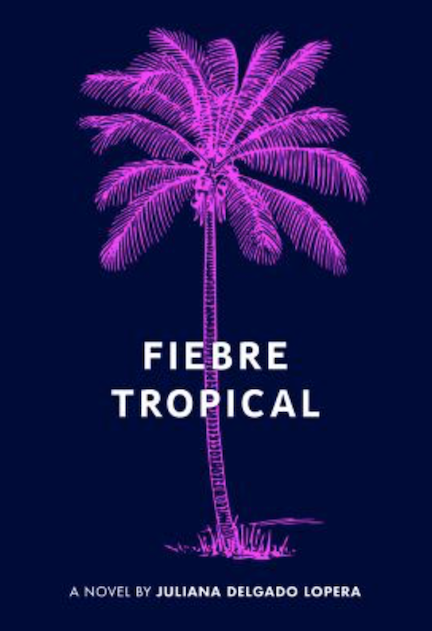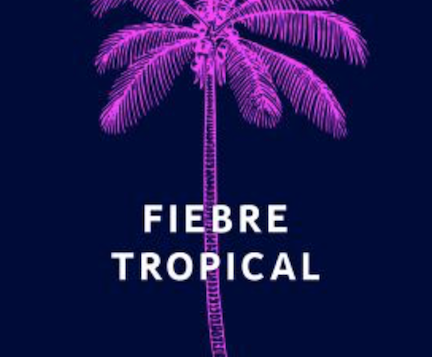 FIEBRE TROPICAL
FIEBRE TROPICAL
by Juliana Delgado Lopera
Feminist Press. 283 pages, $17.95
“BUENOS DÍAS, mi reina.” So begins Juliana Delgado Lopera’s vibrant, voice-driven novel Fiebre Tropical, whose protagonist, Francisca, addresses the narrative to “su reina,” her queen, the Jesus-loving daughter of a preacher, Carmen. In this way, the novel can be read as a love letter to Carmen, who, despite her apparent straightness, incites in Francisca a sexual awakening under the cover of friendship through an evangelical church group, Jovenes en Cristo.
Francisca, it should be noted, resists the religion of her mother Myriam, who joins the evangelical church following a miscarriage.
In Francisca’s ill-advised and doomed attraction to Carmen, many readers will recognize the feverish desperation of someone who needs something, anything, to give them hope. Cut off from her homeland and her friends in Bogotá, thrust into the strange world of tight finances and religious melodrama, Francisca begins the novel with nothing and no one besides her family and its eccentricities. In Carmen, she finds a vessel for her desire, her struggles with the Church, and her loneliness. Carmen has read Sylvia Plath and knows many of the cultural artifacts that Francisca likes. Prior to the events of the novel, Carmen had a nonbeliever boyfriend, and they appear to have had less-than-holy relations. To Francisca’s surprise, she and Carmen are able to connect over more than empanadas and the lie that Francisca pretends to believe.
That this connection leads to trouble will come as no surprise to many readers. But the journey of the novel, like Francisca’s journey to sexual self-discovery, is full of unexpected, uproarious delights, including a scene in which Francisca masturbates with a hot pink condom blown up to resemble a phallus. That Francisca doesn’t really get to explore her sexuality with another girl and must instead make due with a beard of a boyfriend proves frustrating in a way that rings true. It highlights the fluidity of sexuality (and the porousness of religious “virtue”) in scenes both sexy and comical. Throughout the novel, Lopera uses her narrator’s sharp, hilarious voice to explore the boundaries of sexuality, absurdity, family, and country.
In two pivotal flashback chapters to Colombia, Lopera uses Francisca to tell the story of her mother Myriam and grandmother La Tata. In these stories, we see both the escalation of the novel’s religious fervor and the brazen individuality that Francisca inherits from her ancestors. Despite their present-day characters, both Myriam and La Tata were once fierce, strong-willed women, confident enough in themselves to run risky money schemes and to turn down an offer of marriage from an absurdly wealthy suitor. By including their stories in the novel, Lopera puts Francisca’s narrative in a cultural and literary context beyond the Church and its homophobia. In the end, Fiebre Tropical is a triumphant exploration of queer Latinidad in the 20th century.
Ruth Joffre is the author of the short story collection Night Beast. She teaches at Hugo House in Seattle.






